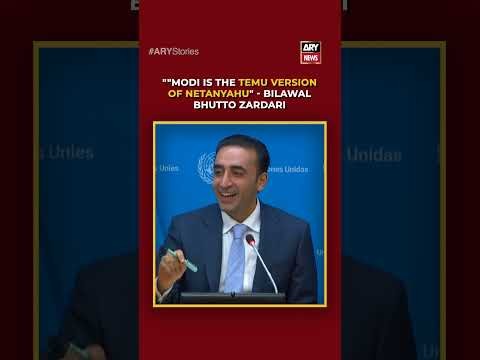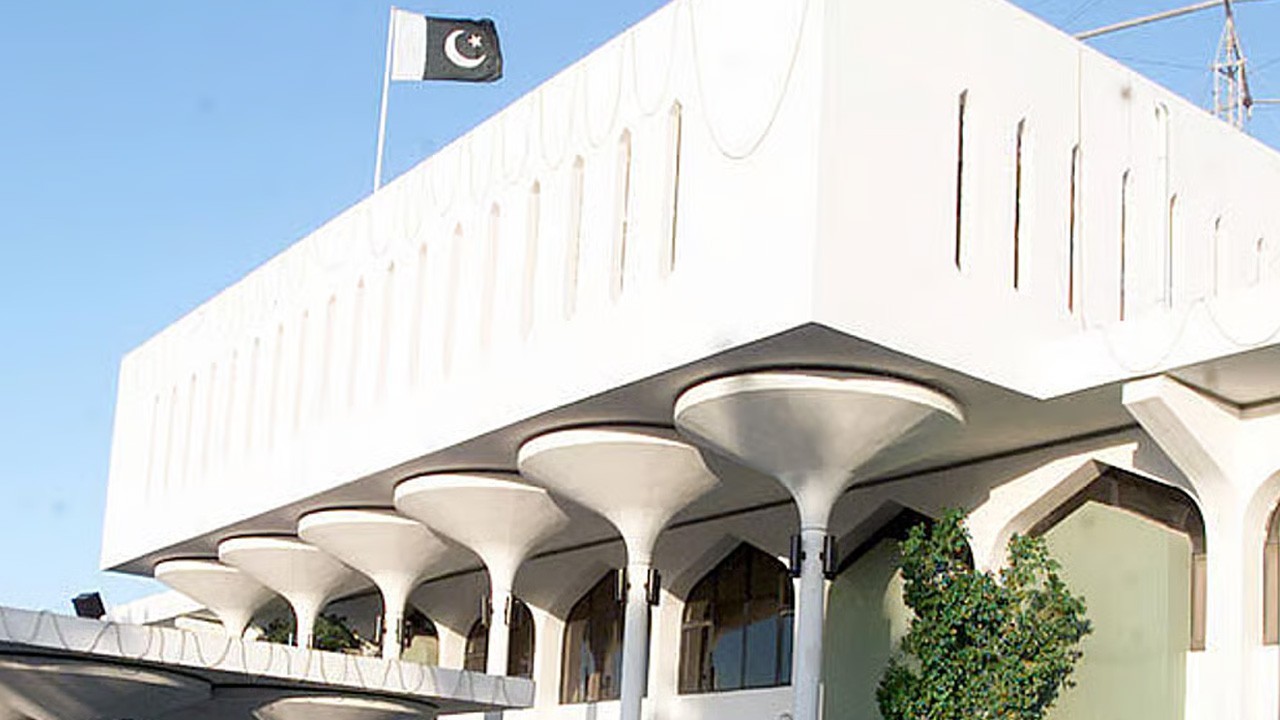Bilalwal Bhutto,Temu and the politics of the perfect punchline

Webdesk
|
4 Jun 2025
Yesterday, Bilawal Bhutto Zardari gave us something rare in Pakistani politics: a moment of pure, unfiltered internet gold. Speaking to the media at the United Nations, the former Foreign Minister dropped a line that had no right to be this effective, this relatable, or this funny.
“Mr. Modi is sort of the Temu version of Netanyahu.”
"Modi is the Temu version of Netanyahu" - Bilawal Bhutto Zardari
In one sentence, Bilawal managed to blend global politics, regional rivalry, and the universal disappointment of online shopping gone wrong. The result? A cultural moment that was instantly meme-worthy, endlessly quotable, and surprisingly sharp. Social media lit up within minutes. The political swipe drew attention, but it was the Temu reference that turned the comment into a cultural moment.
What Temu Really Means
Temu, for the uninitiated, is an international e-commerce app that has become a household name for all the wrong reasons. The products are cheap, the deals look too good to be true, and the experience is often frustrating. Items arrive late - or not at all. Quality is questionable. Customer service is virtually nonexistent. In Pakistan, “Temu trauma” is a shared joke. You order a power bank and receive a keychain. You ask for a watch and get a sticker. It’s funny until it’s not.
So when Bilawal compared Narendra Modi to a Temu version of Netanyahu, it hit differently. The message was clear: an imitation of a controversial original, with even worse delivery. The burn wasn’t just political but also personal, familiar, and painfully accurate for anyone who has ever received a broken charger in a crumpled white package.
Pakistanis on X (formerly Twitter) did not disappoint. Within hours, the quote was everywhere. One user tweeted, “Pakistan took the meme war into the next level.”
Even the haters agreed it was a good point. “May you rot in hell but this is a good point, Billu.”
Another chimed in: “Nah man, he cooked. ‘Temu version of Netanyahu’? He always comes up with the coldest lines.”
At this point, Bilawal might need a Netflix stand-up special.
Even Senator Sehar Kamran joined the clap parade, calling the statement "spot on" and reminding India not to be inspired by “the worst example possible.”
Another laughed:
“Memes are now being exchanged at the United Nations.”
And just when you thought the timeline had peaked, this tweet entered like a perfectly timed drumroll:
“What a chef’s kiss statement by Bilawal! 🔥
India’s foreign policy is in tatters, and #NarenderSurrender getting exposed—this time from Temu, not Tehran!
Keep shopping discounts, Modi. Diplomacy isn’t in your cart. 🛒😂
The line had people spiraling.
“Seriously? Bilawal also experienced Temu?”
Honestly, at this point, it feels like Temu trauma is a shared South Asian experience.
In an era where political messaging competes for attention with celebrity gossip and trending dance videos, language matters more than ever. Leaders are no longer speaking only to diplomats. They're speaking to their citizens, and especially their younger audiences, through formats that make sense to them—memes, reels, and viral one-liners.
And it worked. The “Temu Netanyahu” line has already entered Pakistan’s online trends. It’s being quoted, remixed, and debated.
Perhaps the most fascinating part of this episode is how easily the joke traveled. One user mentioned hearing a similar term in Australian politics, where a lawmaker was once called “Temu Trump.” It seems the idea of cheap political imitations is resonating far beyond South Asia.
“First heard this argument in Australian Parliament when someone called Peter Dutton ‘Temu Trump.’”
In the end, Bilawal Bhutto’s comment was a reminder of how politics is changing. A single sentence, spoken at a press conference, can now travel faster and further than any lengthy interview. And sometimes, the best way to cut through the noise is not with anger, but with humour that hits where it hurts.












Comments
0 comment